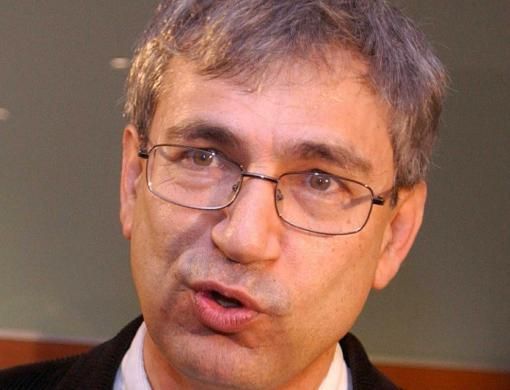Stockholm: Orhan Pamuk, Turkey's best-known novelist and incendiary social commentator, won the 2006 Nobel prize for Literature on Thursday.
The decision, which surprised few, drew a brief but intense round of applause when Horace Engdahl, head of the Swedish Academy, announced the name.
Turkey's culture ministry hailed the Nobel Literature Prize awarded to Pamuk, despite the many controversies the dissident author has stirred up in the country.
"I am very happy and I congratulate him," Mustafa Isen, the ministry's undersecretary told NTV television.
The award "will also draw international attention to Turkish literature and other Turkish writers," he said.
Asked whether the government would wholeheartedly embrace Pamuk's success, Isen said: "I am concerned only with Pamuk as a novelist. His other actions are not of interest to me. I believe he is a good novelist and I believe he was awarded the Nobel for his novels."
In its citation for the 10 million Swedish crown ($1.36 million) prize, the Swedish Academy said: "In the quest for the melancholic soul of his native city, (Pamuk) has discovered new symbols for the clash and interlacing of cultures."
Pamuk, who just months ago went on trial for insulting "Turkishness", was the first author in the Muslim world to condemn the fatwa against Salman Rushdie.
The Academy said his international breakthrough came with his third book, "Beyaz Kale" or "The White Castle", a historical novel about the relationship of a Venetian slave with the young scholar who buys him, and their gradual blurring of identities.
The Swedish Academy said Pamuk in his writing often plays with the notion of self and of doubles, themes that appeared again in a later work, "Kara Kitap" or "The Black Book", in which the main character searches Istanbul for his wife and her half-brother, with whom he later exchanges identities.
Pamuk, whose best-selling novels include "My Name is Red"and "Snow", focuses in his work on the clash between past and present, East and West, secularism and Islamism -problems at the heart of Turkey's struggle to develop.
In January, a Turkish court dropped criminal charges against Pamuk who was charged under Article 301 of a new penal code, which forbids insulting Turkish identity.
Pamuk upset nationalists by telling a Swiss newspaper last year nobody in Turkey dared mention the killing of a million Armenians during World War I or 30,000 Kurds in recent decades.
"Thirty-thousand Kurds and 1 million Armenians were killed in these lands, and nobody but me dares to talk about it," he said in the interview.
The controversy came at a particularly sensitive time for the overwhelmingly Muslim country. Turkey had recently begun membership talks with the European Union, which has harshly criticised the trial, questioning Turkey's commitment to freedom of expression.
The case, in which he risked up to three years in jail, was dropped on a technicality in January after only one hearing marred by far-right demonstrators attacking and booing the author.
The trial was preceded by death threats and a provincial official ordered the destruction of Pamuk's books - a move the government immediately nullified, wary of its democratic credentials in European Union eyes.
Some opponents even charged that Pamuk's rows with the establishment were a calculated move to bolster his international fame and lay his hands on the Nobel.
Engdahl said Pamuk's political situation in Turkey had not affected the decision.
"It could of course lead to some political turbulence but we are not interested in that," Engdahl said. "He is a controversial person in his own country, but on the other hand so are almost all of our prize winners."
Following are some key facts on Orhan Pamuk:
- Born in Istanbul in 1952 to a wealthy family, Pamuk abandoned studying to be an architect to write his first book, but struggled to find a publisher.
- His novels, translated into dozens of languages. The novels deal with the clash between past and present, East and West, secularism and Islamism, often against the colourful backdrop of his native Istanbul.
- He has said he had never sought political controversy, but being a Turk and living most of his life in Turkey means that "my political observations are about Turkey, because that's what I know. I never asked for a political role ... it just happened to me."
- Pamuk, 54, won the prestigious Peace Prize of Germany's book trade association, Germany's highest literary honour, in 2005.













